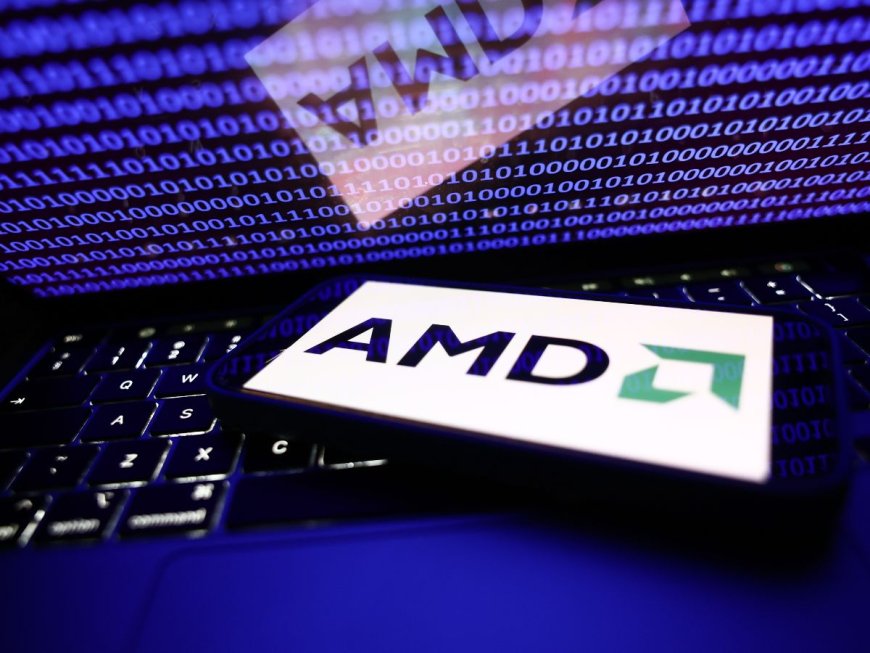AMD Faces Downgrade Amid Rising China Risks and Competition Concerns
AMD has been downgraded by KeyBanc from ‘Overweight’ to ‘Sector Weight’ due to rising risks related to its China business and increasing competition from Intel. While AMD’s stock remains affordable, concerns over gross margin pressures and market share losses have led to the downgrade. However, strong demand for AMD’s MI308 processor and increased personal computer orders provide some positive outlook for the company.

KeyBanc Downgrades AMD Over China Exposure and Margin Pressures
Advanced Micro Devices (AMD) recently saw its stock rating downgraded from ‘Overweight’ to ‘Sector Weight’ by KeyBanc analyst John Vinh. The downgrade stems from rising concerns over AMD’s exposure to China, particularly in relation to its artificial intelligence (AI) business. Vinh pointed out that the increasing geopolitical risks associated with China could jeopardize the stability of AMD’s revenue stream from this region. This potential threat is compounded by the highly competitive landscape in the semiconductor industry, which adds another layer of pressure on AMD’s financial performance.
The semiconductor market, particularly in AI, has been growing rapidly, and companies like AMD are heavily invested in maintaining their foothold. However, with rising tensions and concerns over the future of tech exports to China, AMD’s reliance on this market could prove to be a significant vulnerability. As the company continues to focus on expanding its presence in AI and related fields, the ongoing uncertainty in China could negatively impact AMD's prospects. This prompted Vinh to reassess the stock’s potential in the near term.
Rising Competition from Intel
In addition to concerns over China, Vinh also emphasized the growing competition from AMD’s long-standing rival, Intel. Intel has been aggressively pricing its products and advancing its process technology, most notably with its 18A node. This represents a significant leap in Intel’s ability to produce more efficient and higher-performing chips, which poses a direct challenge to AMD's current market share. AMD has enjoyed significant success in recent years, particularly in the CPU and GPU markets, but Intel's technological advancements could undermine AMD’s competitive edge.
Intel’s strategy of aggressive pricing could also place significant pressure on AMD’s gross margins. Gross margin pressure is a key indicator of financial health for companies in the semiconductor industry, and any sustained decline in margins can lead to a drop in investor confidence. This challenge makes it increasingly difficult for AMD to differentiate itself from Intel, especially as both companies vie for dominance in the AI and cloud computing sectors, which are crucial to their future growth.
Stock Appears Affordable but Faces Challenges
Despite the downgrade, Vinh did acknowledge that AMD’s stock is currently trading at a relatively affordable price, hovering around 13 times the estimated earnings per share (EPS) for 2026. While this might suggest a potential value buy for some investors, the downgrade reflects the broader challenges that the company faces, especially given the risks related to its China business and the mounting competition from Intel.
In the semiconductor industry, margin pressures are particularly concerning, and stocks often struggle to perform well when margins are squeezed. Investors may be drawn to the attractive valuation of AMD’s stock, but the downgrade serves as a reminder that the company’s near-term outlook is clouded with significant risks.
Strong Demand for MI308 Processor Provides Hope
On a more positive note, KeyBanc raised its revenue and earnings projections for AMD, driven by the strong demand for its MI308 processor. The MI308 is part of AMD’s growing portfolio of chips designed for artificial intelligence, and its continued popularity offers some hope for the company’s growth prospects. Additionally, AMD has seen increased orders in its personal computer segment, which provides further support to its revenue outlook.
However, despite these positive factors, the semiconductor giant faces a challenging landscape with its competitors, particularly Intel. While the demand for AMD’s products remains robust, the ongoing geopolitical risks and competition pressures are likely to make it difficult for the company to sustain its current momentum.
News Source: CNBC
What's Your Reaction?












/https://tf-cmsv2-smithsonianmag-media.s3.amazonaws.com/filer_public/54/66/546650fa-26a4-40fd-8d6d-5a7a04540f81/rosetta2.png)
:max_bytes(150000):strip_icc():focal(999x0:1001x2)/robert-prevost-050825-1-39395418ab494da5a3a700c9478e66c8.jpg)















































format(webp))
format(webp))
























